Current
Brian Hunt – Associate Professor
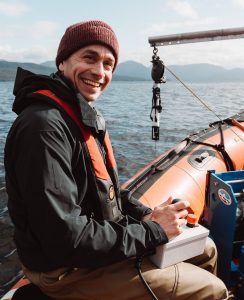 Born and raised in Kwa-Zulu Natal South Africa, on the shores of the Indian Ocean, I was torn between a love for the mountains and all things aquatic before an opportunity to participate in an Antarctic voyage opened my eyes to pelagic ecosystems. So began a life in ocean science that has taken me across the Southern Ocean, tropical South Pacific, Mediterranean, North Pacific and Arctic, and brought an incredible richness in experiences, colleagues met and friends made, and infinite ongoing learning. Today, as an ecosystem oceanographer and together with the wonderful members of the Pelagic Ecosystems Lab, I research the structure and function of pelagic marine ecosystems, and their connectivity to adjacent ocean, land and climatic systems. Much of our research is conducted through the lens of marine food webs, paying close attention to unravelling the complex connections between lower trophic levels, emergent properties of food web nutrition, and connecting across the length of the food chain from viruses to killer whales. Through developing an understanding of how food webs work, including both their internal and external connectivity, we aim to advance a mechanistic understanding of ecosystem response to climate change and other anthropogenic impacts, and a framework for ocean solutions.
Born and raised in Kwa-Zulu Natal South Africa, on the shores of the Indian Ocean, I was torn between a love for the mountains and all things aquatic before an opportunity to participate in an Antarctic voyage opened my eyes to pelagic ecosystems. So began a life in ocean science that has taken me across the Southern Ocean, tropical South Pacific, Mediterranean, North Pacific and Arctic, and brought an incredible richness in experiences, colleagues met and friends made, and infinite ongoing learning. Today, as an ecosystem oceanographer and together with the wonderful members of the Pelagic Ecosystems Lab, I research the structure and function of pelagic marine ecosystems, and their connectivity to adjacent ocean, land and climatic systems. Much of our research is conducted through the lens of marine food webs, paying close attention to unravelling the complex connections between lower trophic levels, emergent properties of food web nutrition, and connecting across the length of the food chain from viruses to killer whales. Through developing an understanding of how food webs work, including both their internal and external connectivity, we aim to advance a mechanistic understanding of ecosystem response to climate change and other anthropogenic impacts, and a framework for ocean solutions.
Teaching: https://oceans.ubc.ca/brian-hunt/
Jaanasheen Bala – Undegraduate Research Assistant (2023-)

I’m an undergraduate student majoring in Biological Oceanography and Neuroscience. I’m interested in combining these disciplines to study the behavioural mechanisms of marine organisms. During my time with the Pelagic Ecosystems Lab, I’ve had the opportunity of being involved with a number of different project. This has given me the chance to perform key oceanography field techniques, and subsequently process the samples utilising DNA extraction and stable isotope techniques. Currently, I am working on a literature review of global urban oceans and data analysis for the International Year of the Salmon project.
Stephanie Moore – UBC student, UBC 4 Year Fellowship (2024-)

I’m a PhD student studying zooplankton as bioindicators to assess the effects of urban stressors on nearshore pelagic ecosystems. Having grown up in coastal cities across Asia, Australia and Europe, and spending time living on the water, I have become acutely aware of the intense interactions and pressures we’re placing on the marine environment in these urban settings. I’m keen to dedicate my time to research that not only deepens our understanding of these anthropogenic impacts but ultimately contributes to informing solutions that mitigate them.
While I am passionate about all aspects of marine science, I am particularly fascinated by zooplankton and what they can tell us about the state of our oceans. Having retrained from engineering to marine science, I try to apply a transdisciplinary approach to my research, drawing on my broad educational background and experiences to the challenges I explore.
Deniz Coskuner – MSc candidate; Mitacs-Pacific Salmon Foundaiton fellowship (2024-)
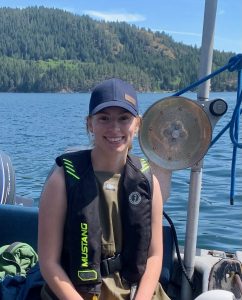
Hello, my name is Deniz and I am a MSc student in Oceans and Fisheries. I am interested in short and long term trends in zooplankton assemblage dynamics, particularity in areas of importance for juvenile salmon. I originally come from Ankara, Turkey, but I grew up in Calgary and now live in Vancouver. I have been privileged enough to spend my summers growing up on the Mediterranean and Aegean sea coasts. Spending endless hours in the sea with goggles on as a kid made me fall in love with these amazing ecosystems. Fun fact, my name, Deniz, directly translates to “Sea” in Turkish!”
Jacob Lerner – Post Doctoral Researcher; BCSRIF Grant awardee (2024-)
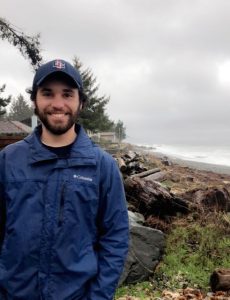 I am a marine scientist with an interest in trophic ecology, biochemical tracers, and the impacts of climate change on marine food webs. I came to UBC to pursue a Ph.D. researching Chinook salmon ecology off the BC Coast by utilizing fatty acid as well as bulk/compound specific stable isotope analysis. I aim to investigate Chinook trophic ecology and habitat-use and to connect these analyses with regional food web dynamics. I am also interested in using these tools to examine the quality of Chinook salmon as prey for threatened resident killer whale populations.
I am a marine scientist with an interest in trophic ecology, biochemical tracers, and the impacts of climate change on marine food webs. I came to UBC to pursue a Ph.D. researching Chinook salmon ecology off the BC Coast by utilizing fatty acid as well as bulk/compound specific stable isotope analysis. I aim to investigate Chinook trophic ecology and habitat-use and to connect these analyses with regional food web dynamics. I am also interested in using these tools to examine the quality of Chinook salmon as prey for threatened resident killer whale populations.
Originally from Connecticut, I completed my M.Sc. at the University of New England, researching the use of stable isotopes to infer the diets of grey seals in the Northwest Atlantic. I have always had a passion for marine life, and while working at a lab at McGill University I became interested in fisheries research the natural way: by catching and then dissecting hundreds of fish. I have been hooked on that feeling ever since.
Email: j.lerner(at)oceans.ubc.ca; Researchgate profile: https://www.researchgate.net/profile/Jacob_Lerner
Anna McLaskey – Research Associate; BCSRIF Grant awardee (2023-)
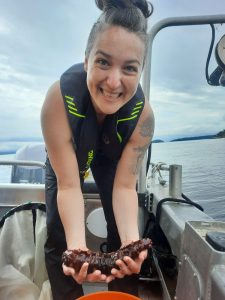
I am a zooplankton ecologist and biological oceanographer who researches the lower trophic levels of marine food webs—from phytoplankton, through zooplankton, to fish. Much of my work focuses on how nutritional quality is influenced by food web structure, and how that can impact higher trophic levels. A new focus of my research is thiamine (vitamin B1) deficiency complex in BC salmon and the potential food web drivers of low thiamine. I grew up on San Juan Island, WA and joined the Pelagic Ecosystems Lab in 2019, after completing my PhD at the University of Washington. My communities and passions have always centered around the ocean, and I love working with our students on a wide variety of marine questions.
Natasha Buckiewicz – PhD student, UBC 4 Year Fellowship (2023-)
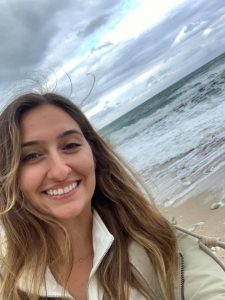 Although I grew up in the landlocked city of Mississauga, Ontario, my summers spent in my maternal homeland of the Açores archipelago were the spark that developed my fascination with the ocean. After completing my B.Sc. in general Biology and Chemistry, I made the jump across the Atlantic Ocean to complete my M.Sc. in Marine Biological Resources at Ghent University. This mobility program broadened my understanding of global issues facing marine life with learning opportunities in Italy, Sweden, France, and international campaigns on the shores of Senegal and the Mozambique Channel. My master’s thesis focused on characterizing the distribution of phytoplankton fatty acids in the south Senegalese upwelling center to support baseline measurements needed for managing declining fish populations. My interest in phytoplankton and experience with algal lipids brought me to the Ph.D. program at UBC Vancouver with the Pelagic Ecosystems Lab. My Ph.D. research focuses on understanding the effects of urbanization on phytoplankton dynamics in the Salish Sea. Using fatty acid and stable isotope analyses, my aim is to answer the question of how urban inputs are changing phytoplankton communities, and what that means for the transfer of energy to higher trophic levels and the overall functioning of these coastal ecosystems. When I’m not in the lab I enjoy rollerblading, hiking with friends, and meeting new people from around the world.
Although I grew up in the landlocked city of Mississauga, Ontario, my summers spent in my maternal homeland of the Açores archipelago were the spark that developed my fascination with the ocean. After completing my B.Sc. in general Biology and Chemistry, I made the jump across the Atlantic Ocean to complete my M.Sc. in Marine Biological Resources at Ghent University. This mobility program broadened my understanding of global issues facing marine life with learning opportunities in Italy, Sweden, France, and international campaigns on the shores of Senegal and the Mozambique Channel. My master’s thesis focused on characterizing the distribution of phytoplankton fatty acids in the south Senegalese upwelling center to support baseline measurements needed for managing declining fish populations. My interest in phytoplankton and experience with algal lipids brought me to the Ph.D. program at UBC Vancouver with the Pelagic Ecosystems Lab. My Ph.D. research focuses on understanding the effects of urbanization on phytoplankton dynamics in the Salish Sea. Using fatty acid and stable isotope analyses, my aim is to answer the question of how urban inputs are changing phytoplankton communities, and what that means for the transfer of energy to higher trophic levels and the overall functioning of these coastal ecosystems. When I’m not in the lab I enjoy rollerblading, hiking with friends, and meeting new people from around the world.
Grace Melchers – MSc candidate; NSERC Graduate Fellowship (2023-)
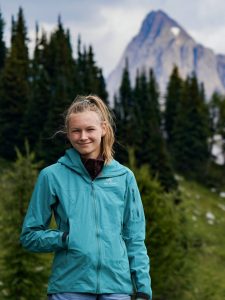
Hi! I am an MSc student in Oceans and Fisheries with an enthusiastic interest in kelp ecosystems and their role in providing habitat. My research focuses on employing environmental DNA techniques to compare biodiversity, food webs and juvenile salmon use within a variety of different kelp ecosystems along the coast of British Columbia including kelp farms and urban kelp forests.
I spent my childhood in the streams and lakes of oceanless Ontario, collecting whatever aquatic life I could find to bring into my elementary classrooms, much to my teachers’ dismay. While I was drawn to the Pacific Northwest for it’s mountains and UBC Forestry’s Natural Resources Conservation BSc program, it’s the ocean that has convinced me to stay. Before returning to UBC to pursue my Master’s, I worked for The Kelp Rescue Initiative on kelp culturing and restoration in the remote coastal town of Bamfield, furthering my admiration for the Pacific Ocean.
Loïc Jacquemot – Post Doctoral Researcher; Fisheries and Oceans Canada Marine Planning and Conservation Fund (2023-)
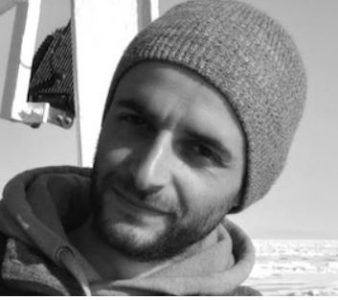
I am a biological oceanographer and my main research investigates how marine organisms adapt to a changing environment. I use recent molecular biology technologies (DNA/RNA metabarcoding, omics) coupled with bioinformatics analyses to study the diversity and distribution of marine communities and how they interact in marine and freshwater ecosystems. Although I grew up far from the coast, I have always been fascinated by the sea and the marine life. After completing a Master degree at Aix-Marseille University, I decided to move to Canada to complete a Phd in Oceanography at Laval University (Quebec). During my Phd, I studied the influence of freshwater on microbial communities in the Hudson Bay (Canadian Arctic). Now working as a postdoc at UBC, my current project investigate how eDNA can be used to characterize biodiversity in BC fjords and explore the role of these fjords as critical habitat and refugia for fish and invertebrate species. I am particularly interested on how this technology can be applied to help and guide marine conservation planning and strategies.
Email: l.jacquemot(at)oceans.ubc.ca; Twitter : @JacquemotLoic; ResearchGate: https://www.researchgate.net/profile/Loic-Jacquemot-2
Dilan Sunthareswaran – MSc candidate (2022-)
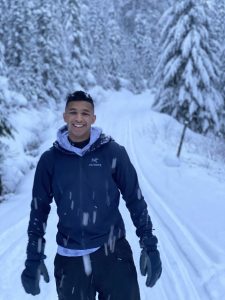
Hello everyone! My name is Dilan and I am an MSc student in Biology and Oceanography. I developed a passion for ocean life very early in my life, watching Blue Planet documentaries with my mother all night (and I still do whenever I get the time!). I am starting my MSc degree after completing my Honours Thesis project with Dr. Hunt’s lab. That project focused on fatty acid analysis of micronekton species across various BC locations, with the goal to understand regional and community differences in food web nutrition.
Jessica Schaub – PhD student; Vanier Canada Graduate Scholarship (2022-)
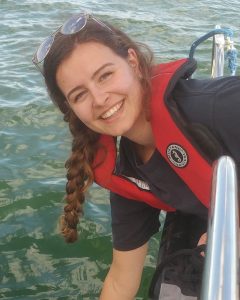
I am a biological oceanographer with a special interest in jellyfish. I am currently working to define the role of jellyfish as keystone species in marine ecosystems and I hope to improve the resolution of jellyfish in whole-ecosystem models.
I also completed my MSc with the Pelagic Ecosystems Lab, where I used feeding experiments to determine how biomarkers are incorporated by jellyfish. Then I applied these calibrations to wild moon jellyfish in BC to describe changes in feeding and nutritional quality of moon jellyfish with size. I was also fortunate to research jellyfish during my undergraduate honors thesis, where I developed a novel method for measuring jellyfish aggregations using drones. Despite growing up in rural, northern Alberta, I have always been infatuated with the ocean and I am lucky to call Vancouver my home!
Researchgate profile: https://www.researchgate.net/profile/Jessica_Schaub3
Email: j.schaub(at)oceans.ubc.ca
Max Miner – MSc candidate; Mitacs Scholar (2021-)
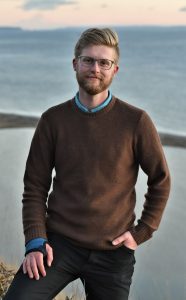
I am an M.Sc. student interested in the impacts of anthropogenic change on coastal marine ecosystems. My work at IOF uses environmental DNA (eDNA) and ancient DNA (aDNA) methodologies to examine harmful algal bloom dynamics along the Pacific Northwest coast. For my thesis, I will be using DNA extracted from nearshore marine sediment core samples to reconstruct past HAB events at a clam garden site in the traditional territory of the Gitga’at Nation.
My love of learning and sense of wonder at the natural world drive my research; sharing that sense of wonder with others gives me purpose. I completed my B.S. in Environmental Sciences in 2016 at Western Washington University. After graduating, I worked as an instructor and, later, an administrator at an environmental education center on the San Juan Islands. Prior to joining IOF, I worked most recently as the Coastal Science Intern for the Washington State Department of Natural Resources, where I conducted research on the environmental drivers of nearshore planktonic community dynamics in the Salish Sea. Additional research interests include marine ecology, archaeology and anthropogenic change.
Genyffer Troina – Post Doctoral Researcher; International Year of the Salmon – BCSRIF Scholarship (2021-)
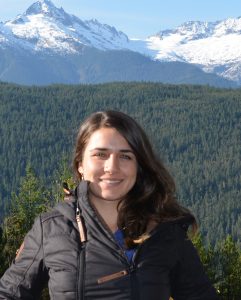
I am a biologist with a joint Ph.D. in Biological Oceanography at the Universidade Federal do Rio Grande (Brazil) and the Vrije Universiteit Brussel (Belgium). My main research interests are predators’ trophic ecology and habitat use, food web dynamics and human-induced changes in marine ecosystems. Since my masters I have been applying natural chemical tracers, such as carbon and nitrogen stable isotopes, to investigate cetaceans’ feeding habits, trophic interactions and foraging areas. In my postdoc, I will be investigating the feeding ecology and trophic interactions of oceanic North Pacific salmon and the pelagic food web that sustain these species using stable isotopes and fatty acids.
Alumni
Sadie Lye – MSc (2022-2025)
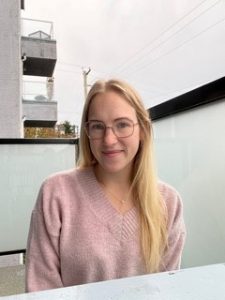
Aidan Morton Ninomiya – Co-Op student (2025)

Emily Brown – MSc (2022-2025)
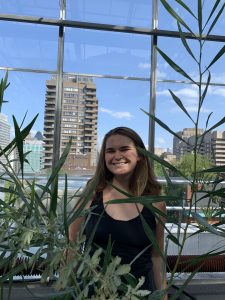
Andreas Novotny – Post Doctoral Researcher (2022-2024)
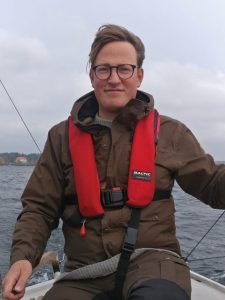
Julia Fast – MSc (2021-2024)
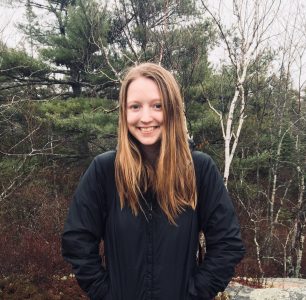
Sama Patnaik – Work Learn International Undergraduate Research Award (2024)

Christie Aoki – Work Learn International Undergraduate (2023-2024)
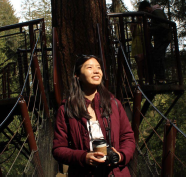
Jacqueline Maud – Post Doctoral Researcher (2018-2023)

Patrick Pata – PhD (2019-2024); Post Doctoral Researcher (2024)
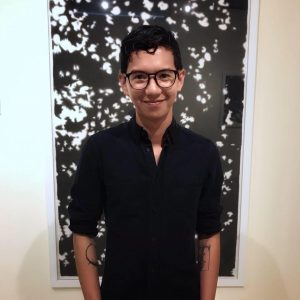
Jacob Lerner – PhD (2019-2024)

Emma Lam – Co-Op Student (2023)
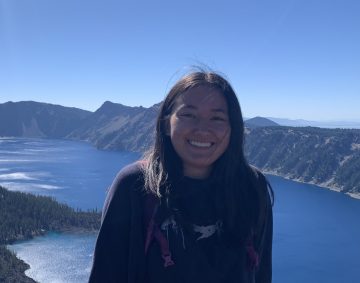
Lauren Portner – Research Technician / Assistant (2018-2023)
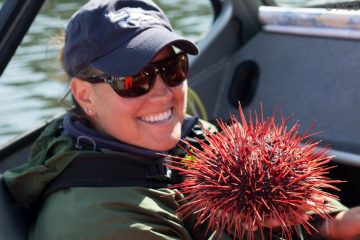
Eloise Savineau – Visting PhD student (Fall 2023)
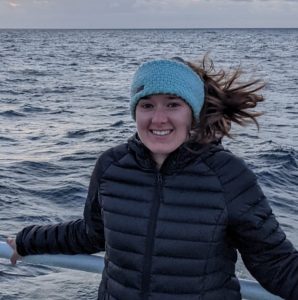
Avijot Grewal – BSc, Directed Studies Student (2023)
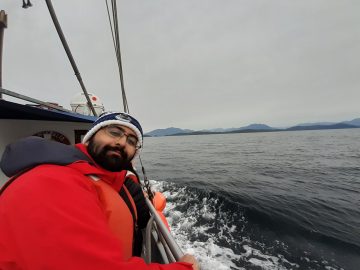
May Fujiwara-Forster – CO-Op Student (2023)
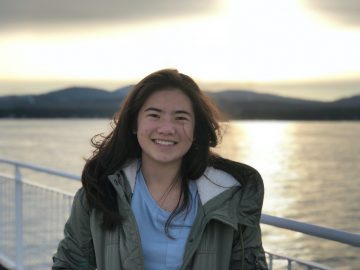
Alicia Anderson – MSc candidate; Mitacs-Tula scholar (2020-23)
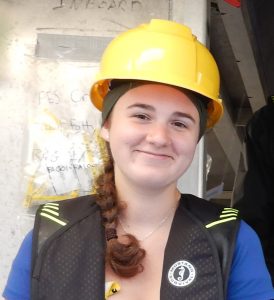
Kyra St Pierre – Post Doctoral Researcher; Hakai Coastal Initiative and Banting Fellowship (2019-2023)
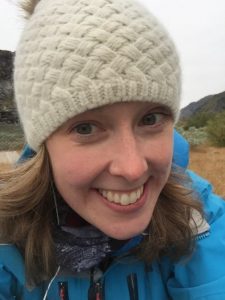
Shuyi Fang – Undergraduate (2022-2023)
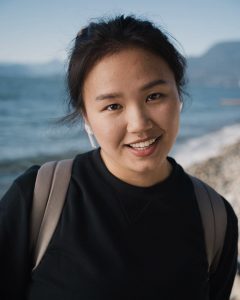
Anita Rodrigues – BSc, Directed Studies (2022-23)
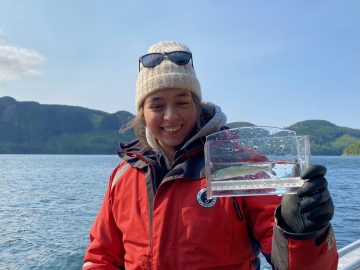
Christian Marchese – Post Doctoral Researcher; Hakai Coastal Initiative (2020-)
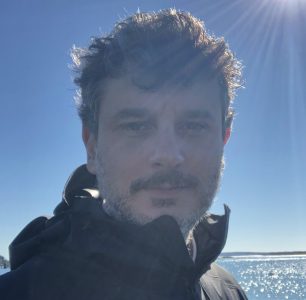
Natalie Benoit – MSc candidate; Mitacs-Tula scholar (2020-2022)
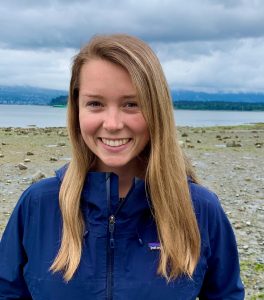
Thomas Smith – MSc candidate (2018-2022)
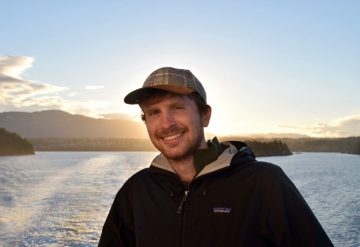
Caterina R. Giner – Post Doctoral Researcher; Hakai Coastal Initiative (2018-2021)
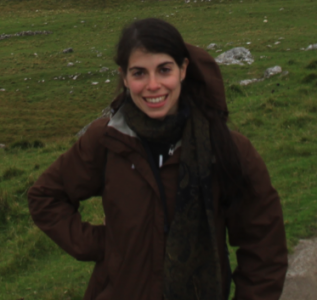
Andrea Frommel – Post Doctoral Researcher; MITACS-Tula Foundation scholar (2020-2021);
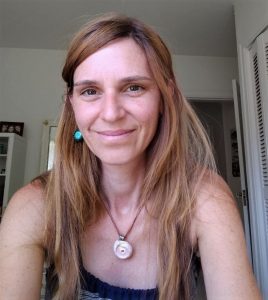
Jessica Garzke – Post Doctoral Researcher; Mitacs-Tula scholar (2017-2021)

Andrew Margolin – Post Doctoral Researcher; MITACS-Tula Foundation scholar (2019-2021)
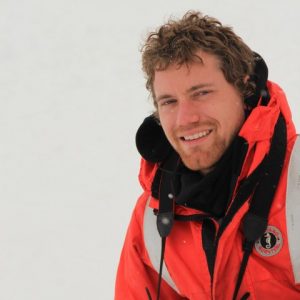
Vanessa Zahner – MSc graduate; Aboriginal Graduate Fellowship Awardee (2017-2021)
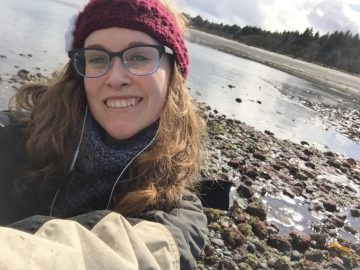
Thesis: “Strategies for coexisting : juvenile pink and chum salmon diets and interactions in a challenging section of coastal migration.”
Caroline Graham – MSc graduate; Monell & Vetlesen Foundation (2018-2020);
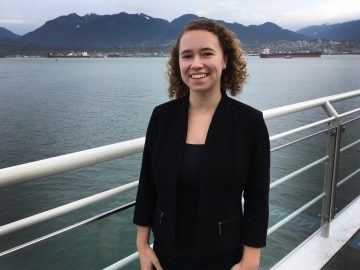
Thesis: “A compilation and meta-analysis of salmon diet data from the North Pacific Ocean” Download thesis here
Natalie Mahara – MSc graduate; NSERC & Mitacs-Tula scholar
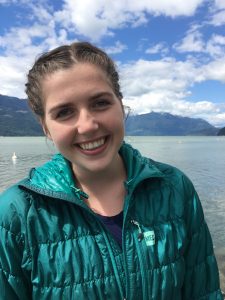
Thesis: ” Zooplankton community composition across a range of productivity regimes in coastal British Columbia.” Download thesis here
David Costalago – MITACS-Pacific Salmon Foundation scholar (2018- 2020); Current position – Fisheries Analyst (OceanMind)
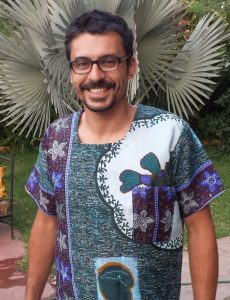
Wade Smith – Post Doctoral Researcher; Hakai Coastal Initiative (2016-2019); Current position – Washington Department of Fish & Wildlife, Science Division
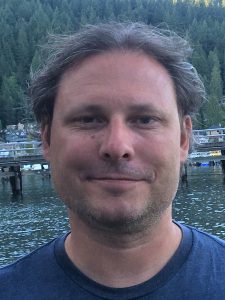
Fernanda Colo Giannini – Post Doctoral Researcher; Hakai Coastal Initiative (2017-2019); Current Position – Professor, Universidade Federal do Rio Grande, Brasil
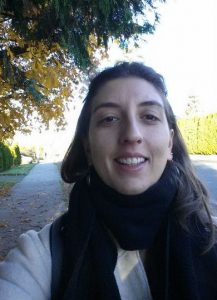
Boris Espinasse – Monell & Vetlesen Post Doctoral Researcher (2016-2019)
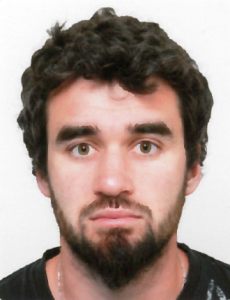
Hayley Dosser – Post Doctoral Researcher (2017-2018)
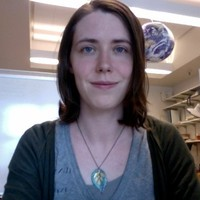
Samantha James – MSc graduate; NSERC & Mitacs-Tula scholar (2016-2019);
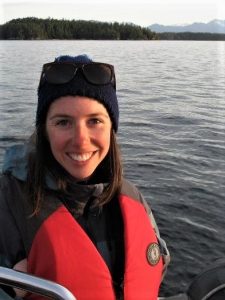
Thesis: Foraging ecology of juvenile Fraser River sockeye salmon across mixed and stratified regions of the early marine migration. Download thesis Here. Thesis Data package.